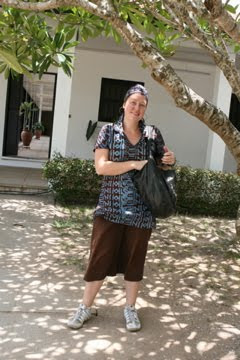>
I came across some interesting information about blogging in Sweden, compiled by the Swedish research institute World Internet Institute – I wonder where similar information about Ghana could be found?
In 2009:
– 400 000 Swedes had their own blog.
– 6 percent of all Internet users in Sweden had blogs and 37 percent read others’ blogs.
– 20 percent of Internet users 16–25 years are writing or have been writing a blog and 60 percent of users in the same age group read others’ blogs.
Amazingly, figures also show that a third of the group “young women” what ever that means, have at some point had a blog and that two out of three in this group read others’ blogs. The overall number of 400 000 blogs is also impressive.
Two thirds of bloggers (64 %) write about everyday life, one fourth (26 %) about a hobby or special interest. Only 6 % blog on politics and 4% about work.
I don’t know how I’d categorize my blog, as I feel I write on politics, special interests (blogging especially!) AND everyday life. Also I hope to blog more on work…I should maybe call it a work blog to be more unique…
On a more serious note, the World Internet Project which the Swedish research institute discussed above is a part of does not have any partner organizations in any African country! How can they then be called the “World” Internet Project? Even though there are no figures (?) for Africa and Ghana, I have the strong feeling there is room among the 44,3 million Internet users for much more blogging! (and mapping of the same phenomena!)
Pic: The Africa Facts courtesy of World Famous Design Junkies via Holli and Scarlett Lion, thanks!


![Reblog this post [with Zemanta]](https://img.zemanta.com/reblog_e.png?x-id=823f9b1c-5ea5-49e7-bc9d-098ef75ec8f1)

![Reblog this post [with Zemanta]](https://img.zemanta.com/reblog_e.png?x-id=a64b3a6f-b80d-414a-86c5-bfd47ae014fa)



